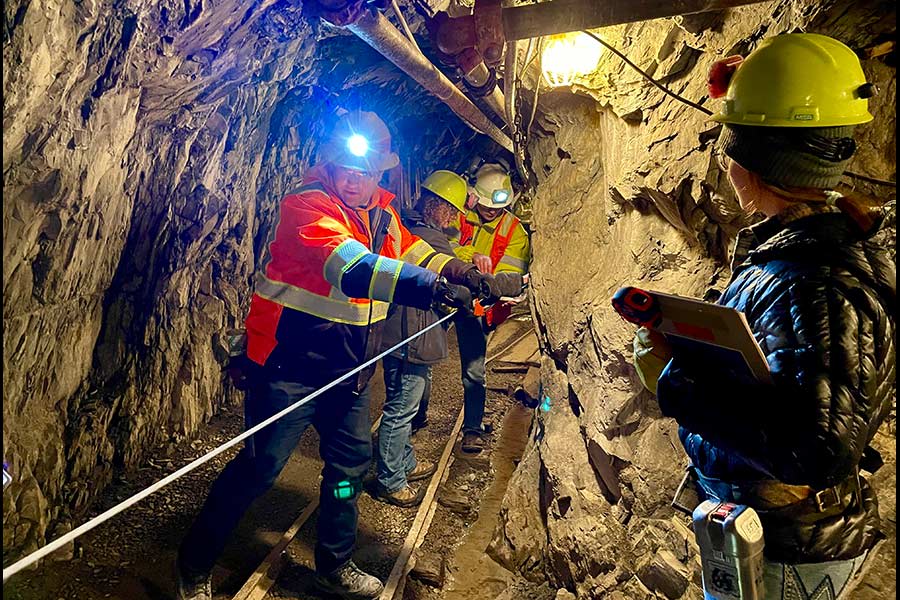A New Pathway for Future Mining Professionals
In a significant move to support Idaho’s workforce development and economic growth, the University of Idaho (U of I) and North Idaho College (NIC) have formed a strategic partnership. This collaboration aims to prepare students for high-paying careers in the mining industry, focusing on safe, efficient, and environmentally responsible operations.
Starting this fall, students in North Idaho will have two options to earn Idaho’s only Bachelor of Science in Geological Engineering. They can begin their studies at NIC and complete the first two years of the program before transferring to U of I to finish their degree. Alternatively, they can attend all four years at U of I’s Moscow campus. This flexible approach ensures that students have access to quality education tailored to the needs of the mining sector.
The undergraduate program is designed to bridge the gap between engineering and earth sciences. It offers a comprehensive curriculum that includes courses in environmental best practices, renewable energy, natural resources, natural hazard risk mitigation, geotechnical risk assessment, and modern mining practices. These subjects are essential for preparing students to meet the evolving demands of the mining industry.
“This degree is a workforce solution,” said U of I President Scott Green. “It connects students directly to careers that sustain Idaho’s economy and shape the future of mining through innovation and minimizing environmental impact.”
Several industry partners played a key role in developing the degree program. U of I representatives visited Hecla Mining Company’s Lucky Friday mine in Mullan and Sunshine Silver Mining and Refining Company’s Sunshine Mine between Kellogg and Wallace to understand the industry’s upcoming workforce needs.
According to the Society for Mining, Metallurgy and Exploration, more than half of the mining workforce is expected to retire by 2029. This trend, combined with the anticipated reopening of two mines in the Silver Valley, has increased the demand for skilled professionals in the field. Bunker Hill Mining Corp. plans to reopen its Bunker Hill Mine in Kellogg soon, while the Sunshine Mine is expected to resume operations around 2030. At full capacity, these mines could employ over 200 people each.
“Pending re-openings of two mines in the Silver Valley are fueling the demand for the geological engineering degree,” said North Idaho College President Nick Swayne. “Working with our communities and employers is an essential function of a community college, and we’re proud to partner with companies and the University of Idaho to help meet workforce demands.”
The new geological engineering degree program builds upon U of I’s existing graduate offerings in geological engineering and mining-focused undergraduate programs within its geology degree. These include sustainable mining, earth resources management, environmental hydrogeology, and energy resiliency.
“The geological engineering degree was built in collaboration with mining industry partners,” said U of I College of Science Dean Ginger E. Carney. “With Idaho’s mining sector ramping up, this degree fills a critical workforce need for hands-on training across geology and engineering. Our graduates will be ready to step into essential roles from day one.”
Mining-related courses are also available through North Idaho College, including diesel technology, mining safety, and electrical apprenticeship. These programs provide students with practical skills that align with industry requirements.
This initiative revives a long-standing history of serving Idaho’s mining industry. In 2002, low enrollment and other factors led to the closure of the College of Mines, established in 1917, and some mining degree programs were also discontinued. However, the current partnership marks a renewed commitment to supporting the state’s mining sector.
Idaho is rich in critical minerals essential for national security, infrastructure, reliable energy, and innovative technology. U of I leads research in developing more effective mining methods that align with modern societal needs.
“Industry response to shifts in economic demand, emerging technologies, and energy needs requires a highly skilled workforce equipped with technical expertise and a forward-thinking mindset,” said U of I College of Engineering Dean Suzie Long. “U of I and NIC are working with industry to make a smart and timely investment in the future of modern mining.”
The Spokane Valley-based American Exploration and Mining Association, a 129-year-old, 1,800-member national trade association, supports the partnership. According to Mark Compton, the association’s executive director, this approach provides students with flexibility and affordability, drawing from a population base close to several hard rock mines and service providers in Eastern Washington, North Idaho, and Western Montana.
“This partnership represents a proactive effort by both institutions to address the needs of the mining industry,” Compton stated.







